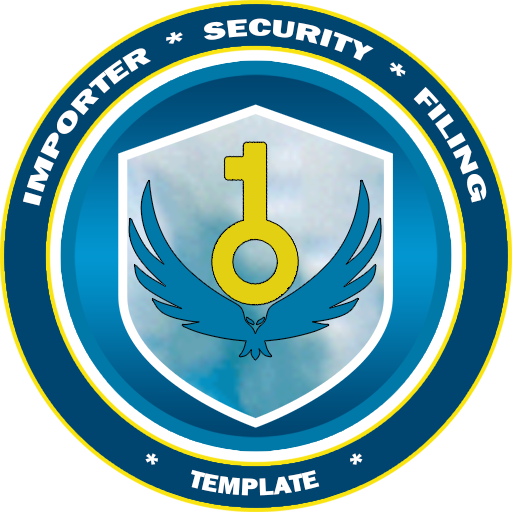Where To File ISF For Smart Translators
Have you ever wondered where to file an Importer Security Filing (ISF) when working with smart translators? Understanding the intricacies of ISF filing can play a crucial role in the timely and efficient importation of goods. As a savvy professional in the import/export industry, recognizing the right procedures and platforms for filing can not only save you time but also mitigate potential compliance issues that could arise during customs inspection.

Understanding Importer Security Filing (ISF)
Importer Security Filing (ISF) is a crucial document that importers must file with U.S. Customs and Border Protection (CBP). This filing must be submitted for cargo arriving by vessel to the United States. The ISF is intended to enhance the security of international trade and provide the CBP with greater visibility into shipments before they arrive.
The key information required in an ISF includes details such as the importer of record, consignee, manufacturer, and the Harmonized Tariff Schedule (HTS) code among others. Given the sophistication of smart translators used in international transactions, it is essential to ensure that all necessary data is accurately captured to facilitate smooth customs processing.
Why ISF Filing Matters
Filing an ISF is not merely a bureaucratic hurdle; it is a significant requirement that can influence the overall flow of your operations. A well-prepared ISF can lead to expedited clearance, minimizing the potential for delays that can translate into financial loss. Moreover, failure to comply with ISF regulations can result in hefty fines and other legal repercussions.
Where to File ISF for Smart Translators
The location and method of ISF filing can greatly influence the efficiency of your import operations. When you seek to know where to file ISF for smart translators, it is important to understand the various options available.
Electronic Filing
In the digital age, electronic filing has become the most popular method for submitting ISF information. The CBP allows importers to file their ISF online through the Automated Manifest System (AMS). This method allows for real-time data processing and reduces the likelihood of errors seen in paper filings. In essence, you file your ISF through a Third Party Logistics provider (3PL) or directly through the CBP’s systems if you meet their requirements.
Platforms such as Customs Broker Software or Integrated Customs Management Systems can seamlessly connect to the AMS, making the ISF submission straightforward.
Finding a Customs Broker
Engaging a licensed customs broker can significantly streamline the ISF filing process. Customs brokers possess the expertise required to navigate complex regulations and can assist in submitting your ISF correctly and on time. When selecting a customs broker, ensure they have an established reputation and experience in dealing with smart translators and other relevant technologies.
Having a knowledgeable customs broker can also aid in other related services, such as Customs Clearance and securing a Customs Bond, making the overall process much more efficient.
ISF Filing Obligations
Adhering to ISF filing obligations is paramount. As an individual or entity importing goods, you must file the ISF no less than 24 hours before the cargo is laden aboard the vessel. This regulation underscores the importance of timely filing and ensures that the CBP has adequate time to assess potential risks associated with the import.
To enhance your understanding of the ISF requirements, consider the following key components typically mandated in the filing:
| ISF Component | Description |
|---|---|
| Importer of Record | The individual or entity in the U.S. that is responsible for the import of the goods. |
| Consignee | The individual or entity to whom the goods are being shipped. |
| Seller | The entity from whom the goods are purchased. |
| Manufacturer | The company that produces the goods. |
| Harmonized Code | The classification code assigned to the product. |
| Country of Origin | The country where the goods are manufactured. |
| Destination Port | The U.S. port where the cargo will enter. |
| Vessel Name | The name of the ship transporting the cargo. |
By understanding where to file ISF and the specific information required, you can mitigate risk and ensure smoother customs operations.
Advantages of Professional ISF Filing Services
Utilizing professional services for ISF filing can greatly enhance your operational efficiency. With a robust service provider, you can enjoy the following benefits:
- Expertise in Regulations: These service providers have an in-depth understanding of customs regulations, ensuring that you remain compliant and avoid penalties.
- Time-Saving: By outsourcing ISF filing, you can allocate resources to other key areas of your business without the worry of paperwork.
- Avoiding Delays: By ensuring timely and accurate filing, the likelihood of customs holds and inspection delays can be significantly reduced.
Making Use of Technology in ISF Filing
The advent of smart technology has transformed the ISF filing process substantially. Sophisticated software solutions offer automated filing systems that dramatically reduce human error. These platforms not only support ISF submissions but also integrate with broader supply chain management systems, ensuring that your intellectual property, including smart translation tools, remains streamlined and secure.
Moreover, modern solutions often provide real-time tracking and compliance checks, making it easier to monitor the status of your ISF filings.
A Step-by-Step Guide to ISF Filing
If you are still uncertain about the specific steps to take regarding where to file ISF for smart translators, following a structured approach can help clarify the process.
-
Gather Required Information: Assemble all necessary data points required for the ISF filing. This information includes details about the goods, the shipping vessel, and relevant parties.
-
Select a Filing Method: Decide whether you will file ISF electronically or through a customs broker. Your choice will likely depend on the volume of shipments and your comfort level with the filing process.
-
Submit the ISF: If you are filing electronically, access the chosen platform and fill in the required information accurately. If you are using a customs broker, provide them with the data so they can submit on your behalf.
-
Follow Up on Filing: After submission, ensure to track your ISF filing status. Following up with your customs broker or the filing platform can provide assurance that everything is in order.
-
Document Retention: Retain copies of all ISF submissions for future reference in case of audits or inquiries from CBP.
Advantages of Customs Clearance Services
When considering ISF filing, it is critical to also contemplate how those filings integrate with customs clearance services. Customs clearance encompasses all formalities required to clear your goods through customs, and here’s why facilitating this service is essential:
- Streamlined Process: Efficient customs clearance can significantly reduce delays in receiving your shipments.
- Documentation Expertise: Clearance services ensure that all customs documents are prepared correctly, minimizing the risk of fines or rejections.
- Adherence to Import Rules: Professional customs clearance experts stay up to date on regulations, ensuring you remain compliant with U.S. laws.
Importance of Customs Bonds
In addition to ISF filing and customs clearance, securing a Customs Bond is another critical component of the import process. A Customs Bond is a guarantee that duties, taxes, and penalties will be paid if necessary; thus, it is essential for importers.
Types of Customs Bonds
| Type of Customs Bond | Description |
|---|---|
| Single Transaction Bond | Covers a single shipment entry. |
| Continuous Bond | Covers multiple shipments over a specified period, typically one year. |
Customs bonds simplify and expedite the clearance process, giving you peace of mind as you manage your imports.
The Role of Smart Translators in ISF Filing and Compliance
In the ever-evolving landscape of global trade, smart translators can significantly enhance communication and operational efficiency. Smart translators equipped with advanced artificial intelligence and machine learning capabilities can assist in translating complex legal documents, including those associated with ISF filing.
These tools can help ensure that your documentation is accurate and compliant with national regulations, minimizing unnecessary errors during the filing process. If you are dealing with international suppliers or logistics providers, having access to smart translation technologies ensures that language barriers do not hinder your operational capabilities.
Conclusion
Navigating where to file ISF for smart translators necessitates an understanding of the regulations and processes involved. Utilizing technology, engaging with professionals, and maintaining adherence to customs requirements can significantly impact the efficiency of your supply chain operations.
Ensuring that your ISF filings are handled correctly not only supports customs compliance but also enhances the overall effectiveness of your import operations. As you continue to interact with various stakeholders in international trade, leveraging smart technologies and the expertise of customs professionals will be invaluable.

Take Advantage of Free Import Consulting
By taking the initiative to learn about ISF filing, customs clearance, and the role of customs bonds, you position yourself as a knowledgeable player in your field. There are many resources available, including free consulting services, that can guide you further in understanding where to file ISF for smart translators.

